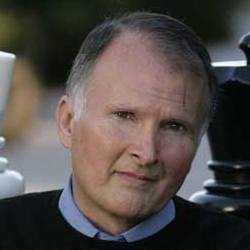
Observations of the 75th anniversary of the end of World War II in Europe (May 8, 1945) will no doubt include remembrances of such searing events as the struggle on Omaha Beach on D-Day, the Battle of the Bulge, and at least some recognition of the enormous contribution made by the Russian people to the defeat of Fascism. Yet in all this, I suspect that the role of the first "high-performance computing" capabilities of the Allies – known as Ultra in Britain, Magic in the U.S. – will receive too little attention.
The truth of the matter is that the ability to hack into Axis communications made possible many Allied successes in the field, at sea, and in the air.
Alan Turing and other "boffins" at Britain's Bletchley Park facility built the machine – a much-improved version of a prototype developed by the Poles in the interwar period – that had sufficient computing power to break the German Enigma encoding system developed by Arthur Scherbius. The Enigma machine was a typewriter-like device which had three rotors, each with an alphabet of its own, which meant each keystroke could create 17, 576 possible meanings (26 x 26 x 26). When a fourth rotor was added later in the war, the possibilities rose to 456,976 per keystroke.
The Germans had faith in their system, but Turing & Co. met and mastered this challenge. The timely information they decrypted had profound effects at many critical moments. When Erwin Rommel and his Afrika Korps made their final lunge toward the Nile, Ultra intercepts kept the British informed of his exact plan of attack – for which they prepared well, then repulsed. In the Battle of the Atlantic, throughout which Admiral Karl Doenitz maintained central control of his U-boat "wolfpack" movements by radio, Ultra hacks not only allowed for the rerouting of convoys away from these predators, but also enabled subhunters to turn up and attack U-boats and their supply ships at even the most remote ocean locations.
Much Ultra-hacked information was shared with the Russians, too – to some extent under cover of a "legend" that the secret material was being provided by a British-run human spy ring. This proved crucial in many Eastern Front actions, but most notably in the massive tank battle at Kursk in July 1943, which truly broke the back of Hitler's panzers. At this point, the Germans became convinced that some traitor was leaking their most highly classified information to the Allies, but they never lost faith in Enigma.
Nor did the Japanese ever give up on their Imperial Codes, the Magic hacking of which led to the ambush of Admiral Yamamoto's massive forces at Midway, and greatly informed and guided the deadly American submarine campaign against Japanese shipping. U.S. Navy "pigboats" sank well over 80% of Japan's merchant marus, and about one-third of the Imperial Navy's warships, almost always guided by instruction from Magic hacks. Indeed, the level of detail was so great that, in all the vast Pacific, an American sub commander often had such exact information that he knew the enemy ships' names, their cargoes, even what the noon position of the ship would be on its course the following day!
Truly, the impact of this first "information war" was profound. Had the Axis Powers been less complacent about the robustness of their codes, the outcomes of several critical battles and campaigns could well have gone in their favor, rather than against them. The lesson for today from this very cautionary tale is that the cyber security of armed forces is absolutely crucial to their physical security, and to their prospects for victory in any conflict.
So, on this 75th anniversary of a war best known and remembered for its range of startling new weapons and the sheer grit of its soldiery in battle, let us take just a moment to recognize that the pioneering high-performance computing capacity of the Allies contributed most significantly to the final margin of victory.
John Arquilla is Distinguished Professor of Defense Analysis at the United States Naval Postgraduate School and author, most recently, of Why the Axis Lost. The views expressed are his alone.



Join the Discussion (0)
Become a Member or Sign In to Post a Comment